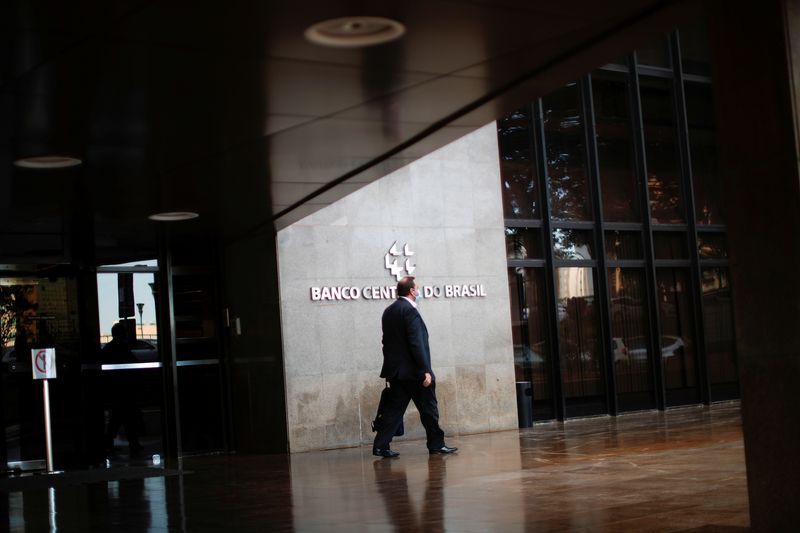By Marcela Ayres
BRASILIA (Reuters) -The Brazilian stock market deepened losses on Thursday after the country's central bank decision to maintain a hawkish stance triggered further criticism from leftist President Luiz Inacio Lula da Silva.
Concerned with rising inflation expectations, policymakers held the benchmark Selic rate at a six-year high of 13.75% on Wednesday for the fifth consecutive time, dashing hopes of a more lenient signal for monetary easing amid global banking turmoil.
The benchmark Bovespa index fell below 100,000 points for the first time since July 2022, deepening losses to 2.9% after former President Lula stated that the central bank should "pay the price" for the high level of interest rates.
The index had opened the session with gains, which, along with other indicators, was seen as a mild market reaction to the central bank's harsh statement.
Expectations embedded in the yield curve that initially continued to show rate cuts kicking off in June have started to point to the central bank acting only in August.
The U.S. dollar rose 0.97 against the Brazilian real after beginning the trading session with a decline.
Sergio Goldenstein, chief strategist at Warren Rena, said the central bank had dampened chances of a near-term cut. He noted that policymakers did not mention a potential credible fiscal framework as a downward risk for inflation, and indicated they could resume hikes if necessary.
"Furthermore, the various criticisms of government officials against the central bank generate uneasiness," he added.
Finance Minister Fernando Haddad described the central bank's statement as "very worrying" and said that maintaining the rate could negatively impact public accounts by creating difficulties for company sales and for collecting taxes.
Lula's chief of staff, Rui Costa, called the central bank "insensitive," while the president of his Workers Party (PT), Gleisi Hoffmann, said the central bank was "only benefiting renters and those who do not produce."

Planning Minister Simone Tebet told reporters the government will demonstrate, by the next rate-setting meeting in May, that there are conditions for reducing interest rates after the government presents a long-awaited new fiscal framework. Lula has delayed its announcement until April.
The framework is crucial for addressing fiscal concerns after the president secured congressional approval for a multi-billion-real package to boost social spending that bypasses the constitutional spending cap.